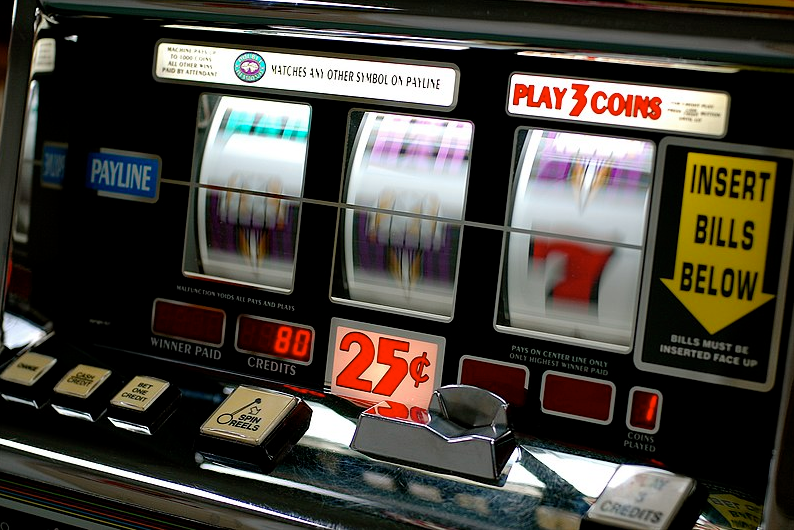Switching her 2010 position to now support legalized gambling, Alabama Gov. Kay Ivey says of gambling opponents, “They don’t have to gamble.”
In a sense, she’s right. We don’t have to go to the casinos or bet on the horses. But we do have to live with the results of gambling. And those results are not pretty.
Last week, I wrote about America’s two failed experiments in gambling, one in the 1700s and one in the mid-1800s. Both had disastrous results, and the current “third wave” of gambling is likely to fare no better.
“We‘re creating a nation of gamblers,” Arnold Wexler of the Council of Compulsive Gambling in New Jersey once said. Valerie Lorenz, executive director of the National Center for Pathological Gambling in Baltimore added, “We are viewing compulsive gambling as the mental health epidemic of the 1990s.”
But as we moved in to the 21st century, the problem of gambling and gambling addiction metastasized. Although some in the gambling industry claim the number of compulsive gamblers is around 170,000, a landmark 2021 study of 18,000 adults says gambling addiction is up to nine times higher, with “1.4 million people … harmed by their own gambling, while a further 1.5 million are at risk” of becoming compulsive gamblers.
I remember a handsome, articulate young lieutenant who sat in my office as I performed Air Force reserve duty as a Judge Advocate. He had been convicted of bad check charges by a military court martial, and my job was to conduct a clemency review. Why, I wondered, would this capable young officer throw away a promising military career? The answer: He had become a compulsive gambler, writing bad checks to support his gambling addiction.
The lieutenant’s story is multiplied a thousandfold. Young people are especially vulnerable, as are men, although women are closing the gender gap in gambling. As noted in my book, “Legalized Gambling: America’s Bad Bet,” a 1980 “Newsweek” article explained:
The gambler’s compulsion is triggered by the first big win. When inevitably, a losing streak sets in, the compulsive gambler increases his bets. As his losses become greater, superstition and magic begin replacing the gambler’s keen judgment. He uses up his earnings and falls behind in his debts. In time, the gambler’s personality degenerates, his career and family life may be ruined and his life becomes a nightmare.
In 1982 “Psychology Today” reported:
In terms of human damage, pathological gambling can be extremely destructive. Politzer [Psychologist Robert Politzer of the Maryland state treatment center for compulsive gamblers] estimates that each compulsive gambler disrupts the lives of 10 to 17 others, including his relatives, creditors and co-workers. According to the [Maryland] Center’s findings, the average compulsive gambler usually bets twice what he makes, and costs society approximately $40,000 a year.
The American Psychiatric Association’s "Diagnostic and Statistical Manual of Mental Disorders" (Fifth Edition) describes gambling disorder as a persistent, recurrent pattern of gambling that is associated with substantial distress or impairment. It especially affects persons with alcohol or drug addiction, psychiatric patients, and persons in varying stages of dementia.
But statistics and psychological terms don’t tell the whole story. Let’s bring it down to the personal level. As I note in my book, “The Nashville Banner” tells the story of Mary, “a shriveled, white-haired wisp of a woman, slumped in her wheelchair in front of the slot machines that jangled and whirred on the pink-and-purple carpet under the glittery chandeliers of the Trump Taj Mahal.”
On her lap was a gray plastic trash bag filled with her belongings: a couple of sweaters, a roll of toilet paper, a few big plastic Bally’s Park Place cups for her winnings. The cups were empty.
An hour earlier, Mary, 72, had picked up her $467 monthly disability check – her only money besides Social Security and food stamps – at the Atlantic City Rescue Mission, a crowded homeless shelter that she calls home.
More often, though, Mary lives at the casinos. That is where she spends hours and days on end, methodically jerking the handles of the Jungle and the Royal Flush and the other slot machines. She stops only to eat a little something, or to snooze for a few hours in her wheelchair, right there in the hubbub of the casino floor. She stays until she has gambled away her government checks or until, in her sleep, she falls out of her wheelchair and the guards pick her up.
She gambles, she says, because of a child long gone. “I hate gambling now,” Mary said.
“I lost a lot of money, but I can’t stop. It makes me feel unconscious. I can’t feel anything. It makes me forget about my little boy.”
Despite all this, the Alabama House of Representatives has approved HB151, which sends a constitutional amendment to the voters in November allowing casinos in various locations, sports wagering, and a state-sponsored lottery, as well as HB152 which would tax gambling activities. These bills now go to the Alabama Senate.
To those Alabama House members who voted against HB151 and 152: I commend you for your courage and clear-sightedness.
To our Alabama Senators: I urge you to carefully weigh these elusive prophecies of profit against the starkly real human tragedies that gambling will produce and multiply.
And to Alabama voters: Rise up, speak up, and say to your legislators and anyone who will listen, “Don’t gamble with Alabama’s future!”
Col. Eidsmoe serves as Professor of Constitutional Law for the Oak Brook College of Law & Government Policy (obcl.edu) and as Senior Counsel for the Foundation for Moral Law (morallaw.org, 334/262-1245). He may be contacted for speaking engagements at eidsmoeja@juno.com.
The views and opinions expressed here are those of the author and do not necessarily reflect the policy or position of 1819 News. To comment, please send an email with your name and contact information to Commentary@1819News.com.
Don't miss out! Subscribe to our newsletter and get our top stories every weekday morning.










